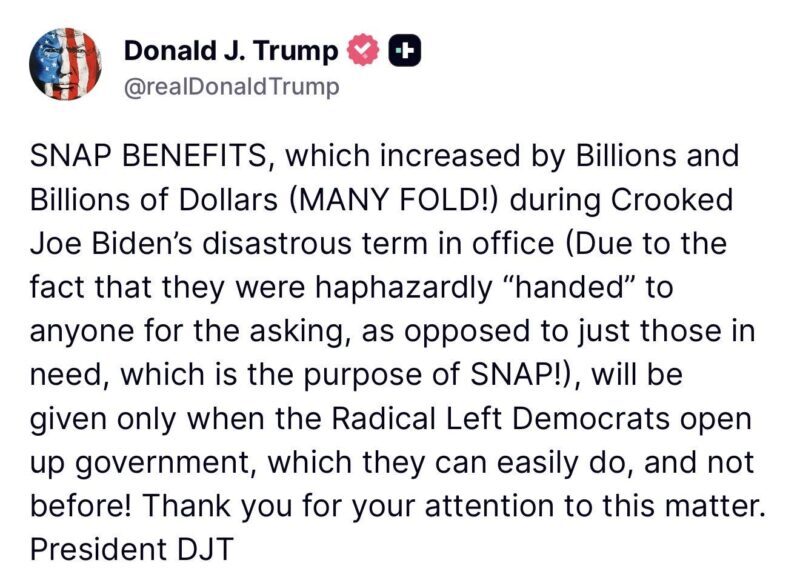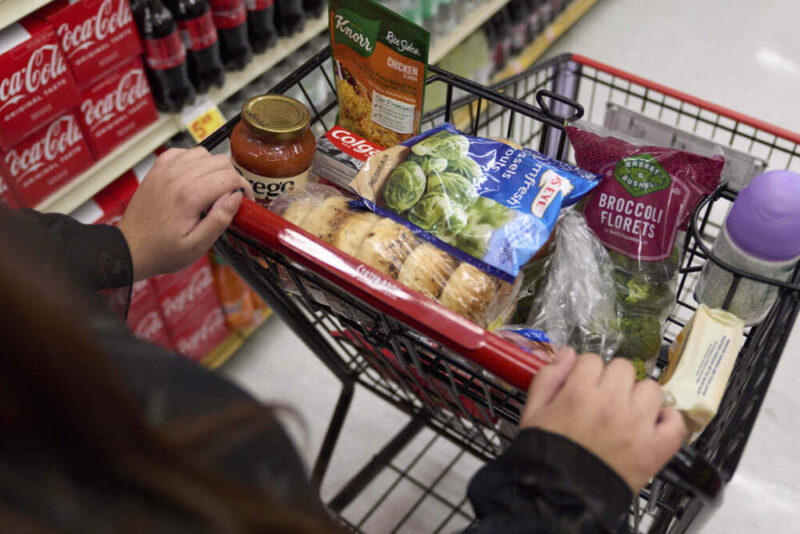Tuesday, on social media, Trump threatened to withhold the food program known as SNAP, which feeds about 42 million Americans, writing, “(they) will be given only when the Radical Left Democrats open up government, which they can easily do, and not before!”

With the U.S. federal government shutdown dragging into its fifth week, many life-saving programs are on the line.
Even though Federal judges in Massachusetts and Rhode Island ruled that the U.S. Department of Agriculture (USDA) must tap emergency contingency funds to continue SNAP benefits during the shutdown, the GOP has stated they will release only a portion of the funds needed.

In Texas, for example, the state’s food-assistance advocates warned that households would receive only about 50 % of their usual payments, and that food banks were already preparing for a surge in demand.
States and nonprofits warn that even a one-month reduction or delay in benefits can push vulnerable households into hunger, malnutrition, eviction risk, or worse.

The legal rulings are clear: the courts found the USDA’s attempt to suspend SNAP payments was unlawful, and ordered the agency to use its available contingency funds. But the administration’s response has been partial at best, citing logistical and legal constraints. The USDA argued that the contingency fund (roughly $5.25 billion) would not cover full November benefits, which are estimated at $8–9 billion.

If the shutdown persists, the temporary stopgap of half-payments may not be sustainable. Advocates warn that December’s benefits could be endangered unless Congress or the administration acts to appropriate full funds or release additional reserve funds.
For households already living on the edge, the disruption comes at a particularly vulnerable time. Food banks in multiple states are bracing for an influx of demand. And while the courts mandated the continuation of benefits, the administration’s limited compliance and ongoing threats of withholding full payments raise urgent questions about hunger, health and stability in millions of American homes.

